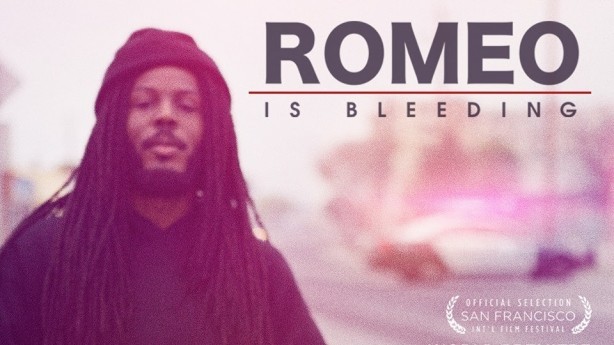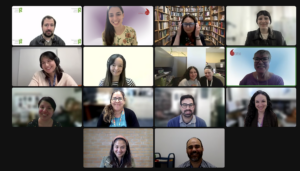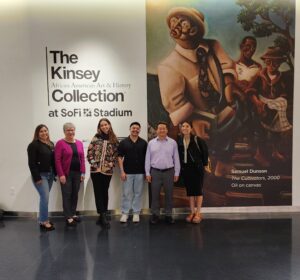“Romeo is Bleeding” a documentary film by Jason Zeldes
Op-ed piece by California Humanities President & CEO, Julie Fry
In 2014, 24 veterans representing U.S. military services gathered at the Concord Vet Center to record their stories of war and homecoming, and share how their tattoos reflect their experiences. Launched by the Contra Costa Library as an online exhibit supported by a grant from California Humanities, “War Ink” garnered national attention, and even helped promote modification of the Department of the Army’s tattoo policy.
Inspired and led by poet Donté Clark, local youth created an urban adaptation of Shakespeare’s “Romeo and Juliet,” set in the streets of Richmond, as documented in the film “Romeo Is Bleeding,” supported by the California Documentary Project to open and expand the dialogue about violence and community.
Here’s the rub, and it hurts. According to recent reports, the Trump administration’s proposed budget eliminates the federal agencies that are the bedrock of America’s cultural and artistic vision: the National Endowment for the Humanities and the National Endowment for the Arts. These are organizations that invest in the people who live in communities of all sizes, stimulating local economies through partnerships with libraries, schools, veterans’ hospitals, nonprofit arts and culture organizations, museums and more.
Shutting down these critical agencies is not a financial decision to balance the federal balance sheet: Their budgets are very small, and together with the Corporation for Public Broadcasting (also on the chopping block), they make up only 0.02 percent of the annual federal budget. However, their impact is exponentially large and has garnered bipartisan support across the country for their role in job creation and attracting businesses into communities.
I have spent the majority of my professional life helping connect people to one another through the arts and the humanities. I was a child when President Lyndon B. Johnson created the two endowments in 1965, so there was never a time when they didn’t help shape who I was and who I became — from hands-on arts education throughout my school years to transformational cultural experiences as an adult. I’ve been able to share what I learned with my own children as they find their creative and civic voices.
I believe the opening of hearts and minds that happens when people have access to historical perspectives, other cultures and creative self-expression is core to a healthy and thriving democracy.
State humanities councils leverage $5 for every federal grant dollar spent at the local level, according to the Federation of State Humanities Councils, with the National Endowment for the Humanities providing seed money that attracts additional foundation, corporate, state government and individual support.
Americans for the Arts states that students have better academic outcomes when they participate in arts learning, and a large majority of business leaders say that “creativity is of high importance when hiring.” The arts and humanities are good for the success of young people and good for the economy, and we all benefit from that.
As Johnson said back in 1965, this is about more than just the money: “It is in the neighborhoods of each community that a nation’s art is born. … The arts and the humanities belong to the people, for it is, after all, the people who create them.”
Our country is richer when the federal government supports and values the arts and humanities. This is not a luxury item. This is who we are as a people.
You can read the article in the op-ed section of the San Francisco Chronicle HERE.





